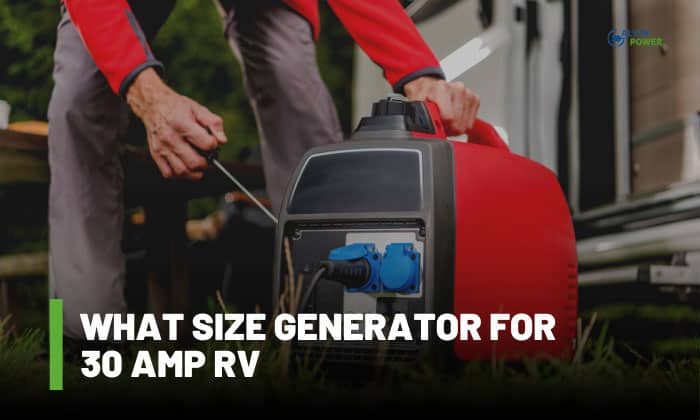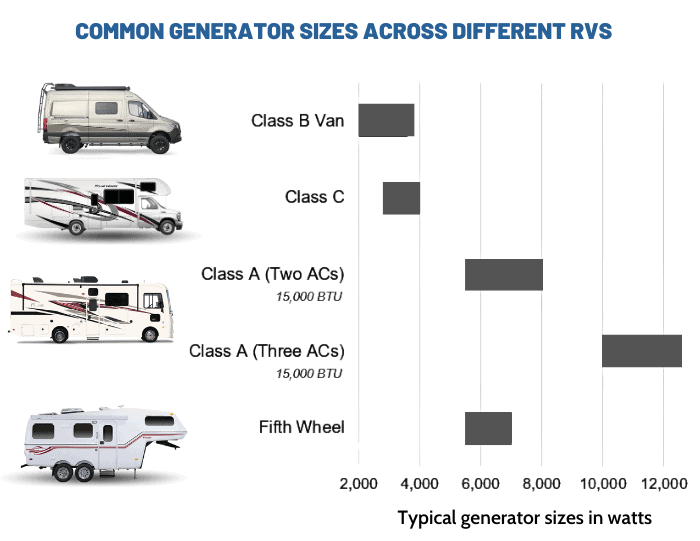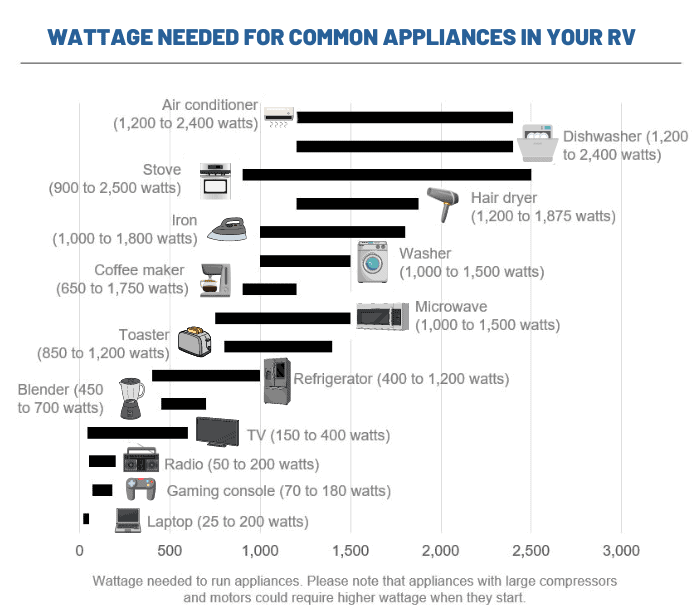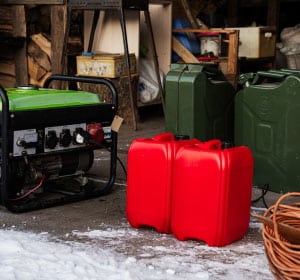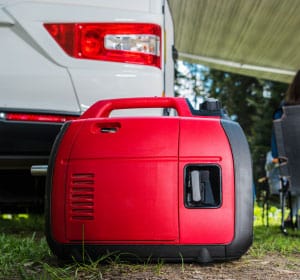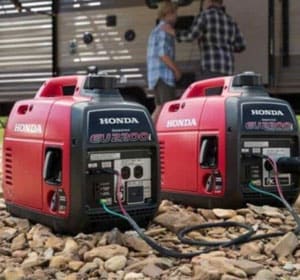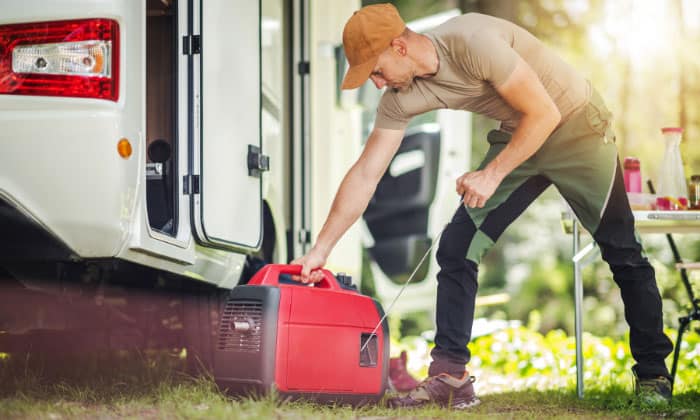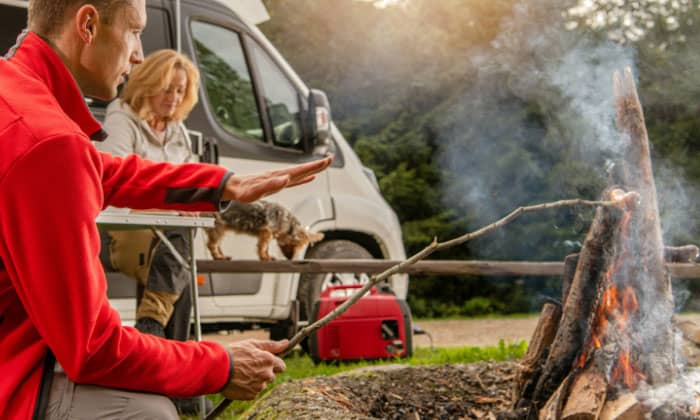When it comes to what size generator for 30 amp RV to use, it is important to understand the electrical demands of your appliances. Each electronic piece of equipment utilizes a certain amount of energy, with some demanding more power than others.
In this article, we will delve into calculating your power needs within your RV. We’ll also look at some other crucial aspects to bear in mind while choosing the best generator to successfully meet those demands.
Table of Contents
How Big of a Generator Do I Need for a 30 Amp RV?
When determining the appropriate RV generator size, several factors need to be considered. This might include your RV’s specific size and the electronic appliances used inside. In that case, here is a guide that may assist you.
1. Factors to Consider for Specific Needs
- Types of RV
RVs vary in size, and it’s important to consider how RV sizes can impact the generator you need. In general, larger RVs necessitate a higher-rated generator, while smaller RVs may only require a smaller generator.
To better understand how many watts does a 30 amp RV use, you can refer to the following RV class chart.
This chart provides a general estimation of the recommended generator size based on average power demand, assuming the class B and class C RV have 1 AC while others come with 2 AC units (fifth wheels) or 3. However, it’s important to note that the specific generator size will depend on your actual power consumption.
As you can see in the above guide, larger class A RVs require a generator with a power rating ranging from 10,000 to 12,000 watts. On the other hand, for 25 foot travel trailer or smaller RV, you might only need a generator with a rating of around 4,000 watts.
- Total Wattage of the Appliances
To accurately find a generator size for RV AC or other appliances, you need to consider their wattage. First, list the electronic devices you need to run in your RV. Then, add up each item’s running wattage and starting wattage to determine the overall power requirement.
You can add the numbers manually or use an online RV generator calculator. Moreover, don’t forget to size the unit according to the total starting watts.
To have an idea of the average power of different appliances commonly used in an RV, refer to an RV appliance wattage chart below.
| Appliance | Starting wattage | Running wattage |
| Air conditioner | 2800 to 3500 | 1300 to 2000 |
| Fridge | 600 to 1000 | 150 to 200 |
| Fan | 100 | 40 |
| Dishwasher | 1800 | 1300 |
| TV | 200 to 300 | same as starting wattage |
| Laptop | up to 100 | up to 100 |
| Water heater | 1000 to 1500 | same as starting wattage |
| LED lights | 3 to 30 | same as starting wattage |
| Microwave | 600 to 1500 | same as starting wattage |
| Furnace | 1600 | 600 |
Typically, a 30-amp RV uses 120V and not 240V. So, how many watts is a 30 amp generator?
A 30-amp generator can deliver a total of 3,600 watts when used on a 120V circuit. This portable generator with 30 amp RV outlet has the power to run RV furnace or to run RV AC with the optimal settings.
However, if you want to run an RV air conditioner alongside other appliances like dryers, dishwashers, and microwaves, you might consider a bigger motorhome like a 50-amp one.
2. Selecting the Right Type of Generator for A 30 Amp RV
When selecting the right type of generator, it is always good to consider the one that is surely beneficial. In most cases, the inverter generator type is the most recommended by most professionals. Let’s quickly compare inverters and conventional generators in some aspects.
- Fuel Efficiency
Inverter generators are known for their fuel efficiency. They reduce fuel consumption by adjusting the engine speed in accordance with the necessary load. Meanwhile, conventional generators often use more fuel, since the engine runs at a steady speed regardless of the load.
- Portability
In general, inverter models are smaller and lighter than traditional generators. They are transportable, which makes them ideal to run a camper that prioritizes mobility. Conventional generators, on the other hand, are frequently bigger, heavier, and good for fixed installation.
- Noise
In terms of noise, you can find some of the quietest 30 amp generator in inverter type. This can be a consideration for RVers who want to minimize noise disturbance in campgrounds.
- Parallel Connections
Many inverter generators offer the option for parallel connections, which means you can connect two small generators to increase your power output for 30 amp RV air conditioner or heater. Parallel connections are less common with conventional generators.
- Emissions
Inverters often comply with stricter emission standards, producing lower emissions to run camper AC and other appliances. Conventional generators, on the other hand, tend to have higher emissions compared to inverter generators.
- Brand
Another factor you need to consider when choosing a generator for RV 30 amp is the brand. It is essential to use only the reputable and trustworthy brands you can rely on when it comes to power generators.
To help you find well-recommended brands, here are some generators that usually meet 30 amp RV power requirements.
| 30 Amp RV Generator | Running Watts | Watts Rating |
| WEN 56380i Super Quiet RV-Ready Portable Generator – (Inverter) | 3400 watt | 3800 watt |
| Champion Power Equipment 200986 Portable Generator – (Inverter) | 3500 watt | 4500 watt |
| Westinghouse Outdoor Power Equipment Super Quiet Generator – (Inverter) | 3700 watt | 4500 watt |
| CRAFTSMAN C0010030 Gas-Powered Portable Generator | 2300 watt | 3000 watt |
| GENMAX Portable Generator – (Inverter) | 2800 watt | 3200 watt |
Installation and Usage Tips
- If you plan to use a conventional generator for travel trailer or RV, make sure to have a carbon monoxide detector. This will help to detect poisonous gas that can be bad for your health.
- For camper generator, choose a well-ventilated, flat surface area where you can install it for safety, easy access, and maintenance.
- Make sure to turn off the generator first before fueling to prevent unnecessary fire.
- To power a camper generator, always open the vent caps to prevent fuel from getting hot and causing an explosion.
- Prevent the generator from getting wet to avoid causing electrical shock.
- Always conduct regular maintenance, such as changing the oil, fuel filter, and air filter, and replacing spark plugs for gasoline-type generators.
Related posts:
Frequently Asked Questions
What Happens if the Generator Size is Too Small for a 30 Amp RV?
Utilizing too small of a generator to power RV can lead to an insufficient power supply. As a result, your appliances can malfunction and potentially incur damage.
Can I Use a Larger Generator than Needed for a 30 Amp RV?
Having a large power generator for RV might be advantageous in some situations because it can produce more power. However, a larger generator can also be unnecessary and require more fuel, which will cost more money.
How Do I Safely Connect a Generator to My RV?
To safely connect any kind of generator to your RV, ensure your RV is securely parked on level ground. Then, place your generator in an open space to ensure safe operation. Lastly, ensure your generator is in good condition before starting it.
Can I Hook up a 30-amp Generator for 30 Amp Breaker?
A generator with 30 amp plug should be used with a 40A breaker. This way, the breaker will trip first before the generator overloads.
Conclusion
In conclusion, knowing what size generator for 30 amp RV is essential to ensure you get a reliable source of electricity. This way, you can enjoy a comfortable and hassle-free camping experience with a consistent power supply.
Understanding how many watts is 30 amp RV hookup is also essential if you have an RV rated for 30 amps. However, if you have trouble determining the total wattage of your equipment, consulting with an expert can help you find a generator that meets your needs.

I am Edwin Jones, in charge of designing content for Galvinpower. I aspire to use my experiences in marketing to create reliable and necessary information to help our readers. It has been fun to work with Andrew and apply his incredible knowledge to our content.

